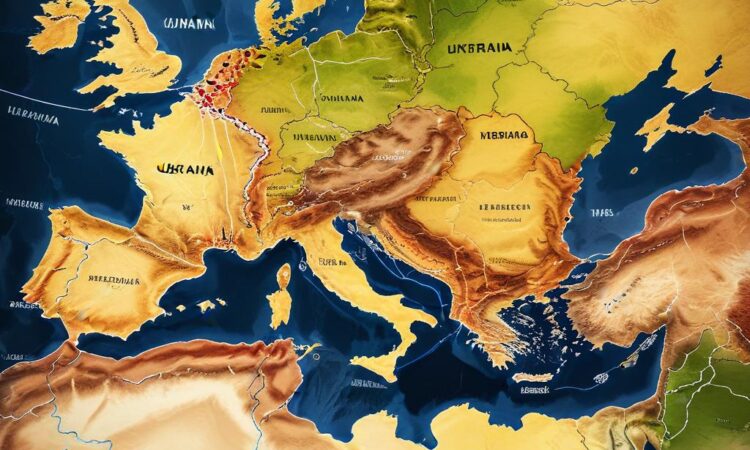Geopolitical Mayhem: How the Ukraine War is Messing with Global Trade
Okay, so let’s talk about something seriously impacting our lives: the war in Ukraine and its crazy ripple effect on global trade. It’s not just some abstract news story; it’s affecting the stuff we eat, the energy we use, and even the prices we pay at the grocery store. Seriously.
The ongoing conflict, combined with all the sanctions flying around, is creating a massive traffic jam in international trade. Think of it like a major highway being completely blocked – only this highway is global, and the cargo includes things like energy, grains, and fertilizers. These are essential stuff, people!
Energy prices are, well, let’s just say they’re not looking good. Remember those relatively stable gas prices we kinda got used to? Yeah, those are long gone thanks to the war disrupting energy supplies. This isn’t just impacting individual consumers; it’s throwing a wrench into the works for entire industries.
Then there’s the food situation. Ukraine and Russia are major players in the global grain market. The war has massively disrupted their exports, leading to shortages and price hikes. This is particularly worrying for countries that rely heavily on imports of wheat, corn, and other grains. We’re talking about real food security concerns, not just some abstract economic theory. Organizations like the WTO and various think tanks are sounding the alarm, and rightly so.
Fertilizers? Yep, they’re caught in the crossfire too. Russia is a huge exporter of fertilizer, and the sanctions and logistical nightmares are making it incredibly difficult to get these essential agricultural inputs to where they’re needed. This isn’t just bad news for farmers; it translates directly into higher food prices for everyone.
The overall effect is increased uncertainty and volatility in international markets. Businesses are struggling to predict costs, plan for the future, and honestly, just stay afloat. It’s a perfect storm of disruptions: supply chain issues, inflation, and geopolitical instability all swirling together to create a mess.
It’s not all doom and gloom, though. There are efforts underway to mitigate some of these problems – finding alternative supply routes, exploring different energy sources, and trying to ensure food reaches those who need it. But it’s a complex situation with no easy fixes. It’s gonna take time, international cooperation, and a whole lot of creativity to navigate this.
So next time you’re at the grocery store and notice higher prices, or you hear about energy price hikes, remember that the situation in Ukraine is playing a significant role. It’s a reminder of how interconnected our world is and how easily global events can impact our daily lives. It’s a complex situation, and the full impact is still unfolding. Stay informed, stay aware, and let’s hope for a swift resolution to this conflict and a return to some semblance of global trade stability.
This situation is far from over, and we’ll continue to see the effects of the war in Ukraine on global trade for some time to come. It’s a dynamic situation, and things are constantly changing. So keep checking back for updates!
This is a situation that demands our attention, and a concerted effort from world leaders and international organizations to find solutions that address both the immediate crisis and the long-term implications for global trade and food security.
The impact of the Ukraine conflict extends far beyond the battlefield; it is a stark reminder of the fragility of global supply chains and the crucial need for resilient and diversified trade networks.
Understanding the multifaceted implications of this conflict is vital, and staying informed is key to navigating the economic and social challenges it presents.
The situation is constantly evolving, and further analysis and reporting are necessary to fully grasp the long-term implications of this geopolitical crisis on global trade and economic stability.
The complexities of this crisis demand continued attention and diligent efforts to mitigate its negative consequences and build more resilient global systems in the future.
We need global cooperation and innovative solutions to overcome the challenges posed by this conflict and build a more sustainable and secure global trading system.
It’s a multifaceted problem with no easy solutions, and requires continued analysis and reporting to fully comprehend its ramifications and develop effective strategies for mitigation.
The international community must work together to address the profound consequences of this conflict and ensure a more stable and equitable future.

